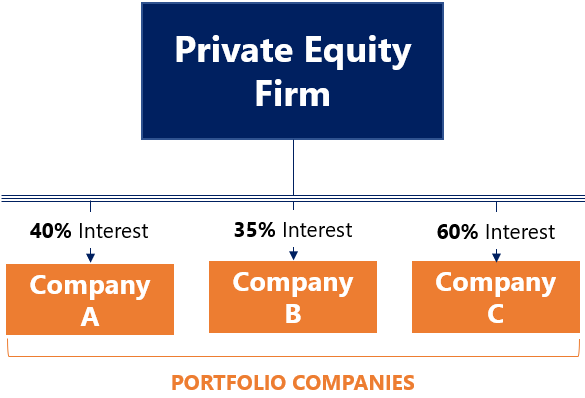Financial investment firms invest cash on part of their clients that, in return, share in the revenues and losses.

Financial investment companies do not consist of brokerage firms, insurance policy companies, or financial institutions.
A significant sort of company not covered under the Investment Company Act 1940 is exclusive financial investment firms, which are just personal business that make investments in stocks or bonds, yet are limited to under 250 capitalists and are not regulated by the SEC. These funds are frequently composed of very wealthy financiers.
Managed funds typically have constraints on the types and quantities of financial investments the fund manager can make. The bulk of investment firms are common funds, both in terms of number of funds and properties under monitoring.
Mineral Rights Companies
The initial investment company were developed in Europe in the late 1700s by a Dutch trader that desired to allow little investors to pool their funds and expand. This is where the concept of financial investment business come from, as specified by K. Geert Rouwenhorst. In the 1800s in England, "financial investment pooling" arised with counts on that resembled modern-day financial investment funds in structure.

New safety and securities policies in the 1930s like the 1933 Securities Act brought back financier confidence.
The act regulates investment firm capital, guardianship of possessions, transactions with associates, and fund board duties. The Financial Investment Advisers Act of 1940 controls financial investment advisors to registered funds and various other huge advisors. It establishes registration, record keeping, reporting and various other needs for consultants. The Stocks Exchange Act of 1934 manages trading, trading of protections including investment firm shares. In 1938, it licensed the production of self-regulatory organizations like FINRA to manage broker-dealers. The Stocks Act of 1933 needs public safety and securities offerings, including of investment firm shares, to be signed up. It likewise mandates that financiers obtain a present syllabus describing the fund. "Investment firm". United State Securities and Exchange Payment (SEC).
Investment Firms
Lemke, Lins and Smith, Law of Investment Business, 4.01 (Matthew Bender, 2016 ed.). ACM. 2023.
In retail investment funds, thousands of investors may be entailed by means of middlemans, and they may have little or no control of the fund's tasks or expertise about the identities of various other financiers. The possible number of capitalists in an exclusive mutual fund is typically smaller than retail funds. Private financial investment funds tend to target high-net-worth people, including politically subjected persons, and fund managers may have a close relationship with their client investors.

Passive funds have been growing in their market share, and in some jurisdictions they hold a substantial portion of possession in publicly traded companies. There are various classifications for investment funds. For instance, some are closed-end, suggesting they have a fixed variety of shares or resources, whilst others are open-end, indicating they can turn into limitless shares or resources.
The rates, threat, and regards to by-products are based on a hidden property, and they enable financiers to hedge a placement, rise take advantage of, or speculate on an asset's modification in worth. An investor may have both a stock and an option on the same supply that enables them to sell it at a set cost; as a result, if the stock's cost falls, the alternative still retains value, decreasing the financier's losses.
Whilst thought about, given the emphasis of this briefing on the BOT of business vehicles, a full treatment of the useful possession of possessions is outside its scope. A mutual fund serves as a channel to gain from one or even more properties being held as investments. Financiers can be individuals, corporate cars, or organizations, and there are typically a number of middlemans in between the investor and investment fund in addition to between the financial investment fund and the underlying economic assets, particularly if the fund's systems are exchange-traded (Box 1).
Investment Management Companies
Relying on its lawful kind and framework, the individuals exercising control of a financial investment fund itself can vary from the individuals who possess and gain from the underlying properties being held by the fund at any given point, either directly or indirectly. Both retail and personal mutual fund normally have fund supervisors or consultants that make financial investment choices for the fund, choosing safeties that line up with the fund's goals and take the chance of resistance.
and function as intermediaries in between investors and the fund, assisting in the purchasing and marketing of fund shares. They connect capitalists with the fund's shares and execute trades on their part. manage the registration and transfer of fund shares, preserving a document of investors, refining ownership adjustments, and releasing proxy materials for investor conferences.
Navigation
Latest Posts
Investment Management Companies around Edinburg
Mineral Rights Companies
Investment Company